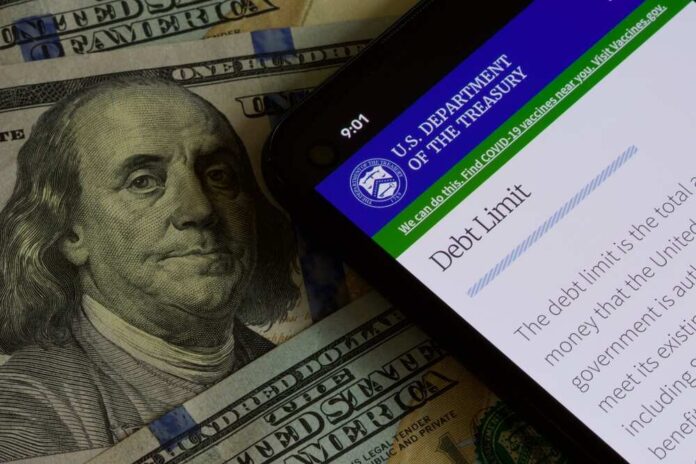
The United States is on the brink of a potential debt ceiling crisis, as warned by Goldman Sachs. Without an increase in the debt ceiling, the Treasury Department may face a severe cash shortage, jeopardizing the federal government’s ability to meet its financial obligations.
The Treasury’s Cash Position and Extraordinary Measures. Since January, the United States national debt has skyrocketed to an unprecedented $31.4 trillion. To manage this staggering debt load, the Treasury has resorted to employing “extraordinary measures.” These measures involve intricate accounting maneuvers, such as transferring funds between accounts to meet the country’s financial obligations. However, once the balances in these accounts fall below $30 billion, the Treasury will no longer have the flexibility to rely on exceptional measures.
Recent data reveals that the Treasury’s cash position has experienced a significant decline. According to economists at Goldman Sachs, the cash reserves dwindled by over $57 billion last Thursday, dropping from approximately $92 billion the day before. Fluctuations in tax revenues and spending patterns influence the Treasury’s cash balances on a daily basis. Nonetheless, it is evident that the current extraordinary measures cannot be sustained indefinitely.
Extended Deadline and Ongoing Negotiations. The estimate provided by Goldman Sachs suggests that the Treasury’s cash reserves could run dry by June 8 or 9. This revised timeline grants lawmakers additional time to finalize a deal, surpassing the initially anticipated deadline.
In light of the impending crisis, negotiations between President Biden and House Speaker Kevin McCarthy have gained momentum. Both parties aim to prevent default and find a resolution to the debt ceiling issue. However, challenges lie in the diverging viewpoints of Democrats and House Republicans.
Democrats have exhibited hesitancy toward accepting budget cuts, while House Republicans insist on incorporating spending limitations, particularly concerning non-defense discretionary expenses. Bridging this ideological divide is crucial for reaching a consensus.
Upcoming Meetings and Compromise. President Biden, who had cut short his trip to Japan for the G-7 summit due to the urgency of the situation, is scheduled to meet with House Speaker McCarthy on Monday. The purpose of this meeting is to intensify efforts toward a compromise. Ahead of this crucial discussion, officials from both sides will convene on Sunday night to prepare for the negotiations.
House Speaker McCarthy has emphasized the need to achieve a compromise in principle during the weekend. This approach would grant Congress enough time to translate the agreement into legal text and subsequently pass the bill through the House and Senate, all before the critical June 1 deadline.














